Drew Myron's Blog, page 83
July 19, 2011
Fishtrapped
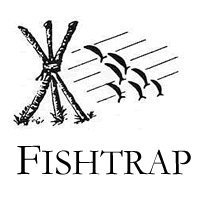 I've just returned from Fishtrap, a writing workshop held in the far reaches of eastern Oregon.
I've just returned from Fishtrap, a writing workshop held in the far reaches of eastern Oregon.
The Fishtrap mission is to "promote clear thinking and good writing in and about the West" and for one full week an accomplished (yet approachable) faculty of poets, essayists, novelists, historians and publishers led and encouraged a group of more than 100 writers through an exploration of Migrations & Passages.
What does it mean to move, to travel, to grow up, to be displaced?
Situated at the base of the dramatic Wallowa mountains, getting to Fishtrap is a migration itself. From my western home on the Oregon Coast to the state's eastern edge town of Joseph, Oregon is a nine-hour drive. Passage, indeed, as I drove through temperate rainforest, passed idyllic farms, along carved river gorge, across dry ranch land, and into remote small towns. Remote is understatement, and I say this as one who lives in a town of 650 people and no stoplights.
The displacement was refreshing. I gently pulled from routine and leaned into a roadtrip hum that allowed my mind to wander and wonder.
How do our journeys — of body and soul and pen — awaken us to the new, the foreign, the familiar?
Through writing classes, planned and spontaneous readings, and lively mealtime conversations, Fishtrap provided time, space and opportunity to make creative leaps. Situated at 4,000 feet in forested wilderness, and stripped of cell phone service and internet connection, quietude prevailed as new poems brewed.
And how can staying in a place also change who we are?
Writer Pico Iyer served as guest speaker and visiting thinker. Born in England, to parents from India, Iyer lives in both Japan and California and works as a travel writer (in the sense that outward travel stirs inward introspection). He is the author of two novels and seven nonfiction books exploring globalism, migration, crossing cultures and literature, including The Global Soul: Jet Lag, Shopping Malls, and the Search for Home.
Iyer crystallized the week's theme by sharing his amusing but profound perspective on what it means to be at home in the world. Always an outsider, he spoke of "the dance between the need to belong and the need to stand apart."
It's a dance, like migrations and passages, that may take me a lifetime to learn, to fully live.
July 9, 2011
Allons! the road is before us!
 I spent the week with a lively group of 11, 12 and 13-year old girls.
I spent the week with a lively group of 11, 12 and 13-year old girls.
As the Summer Camp Adventure Writers (a program of Seashore Family Literacy), we made each day an exploration of the world around us. We journeyed across the historic Alsea Bay Bridge, hiked the temperate rainforest of Cape Perpetua, took the city bus to Newport to wander the working bayfront, and kayaked Eckman Lake, where we paddled against a steady wind that made us feel strong and accomplished when we returned to shore.
As our call to action, we adopted Walt Whitman's Song of the Open Road:
Allons! the road is before us!
It is safe—I have tried it—my own feet have tried it well—be not detain'd!
Let the paper remain on the desk unwritten, and the book on the shelf unopen'd!
Let the tools remain in the workshop! let the money remain unearn'd!
Let the school stand! mind not the cry of the teacher!
Let the preacher preach in his pulpit! let the lawyer plead in the court, and the judge expound the law.
Camerado, I give you my hand!
I give you my love more precious than money,
I give you myself before preaching or law;
Will you give me yourself? will you come travel with me?
Shall we stick by each other as long as we live?
Every day we viewed the world with fresh eyes, remembered to taste the air, smell the earth, touch the quiet world within.
One blink is all it takes to see a whole new world.
— Hannah, age 11
Each reflection sparked another so that our pens moved as quick as our feet and words flowed as easily as our laughter.
I search through my mind to find I have seen the small stuff. I have asked why and I know that when you explore yourself you will always find new things.
— Lexi, age 12
Next week, I will attend another sort of summer camp; I've been granted a fellowship to attend Fishtrap, a weeklong writing workshop in eastern Oregon. I imagine it as a summer camp for adults — with the same delicious influence on travel, both inward and outward. In fact, this year's theme is Migrations & Passages. The featured guest is renowned travel writer Pico Iyer, who wrote, "We travel, initially, to lose ourselves; and we travel, next, to find ourselves."
For children and adults, I'm happy to say the same message applies:
Allons! the road is before us!
July 6, 2011
Read. Floss. Write.
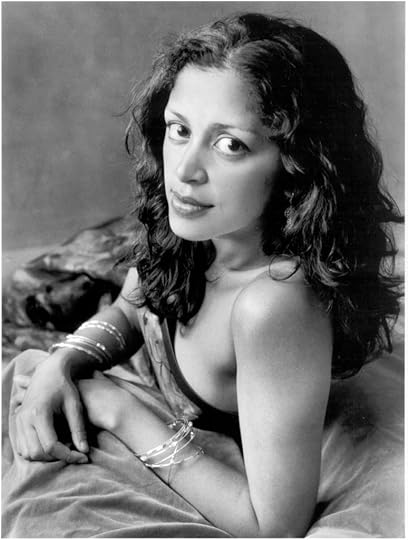 Oh, I have lots
Oh, I have lots
of little morsels of advice:
Read often and a lot. Floss.
Invest in a good pair of shoes
and write letters more often.
Listen to the paper take the ink
when you sign your name.
Check out Poetic Asides, a Writer's Digest blog by Robert Lee Brewer, who has gathered writing advice from an impressive collection of contemporary poets, including two of my (Pacific Northwest) faves -- Dorianne Laux and Susan Rich.
How about you: What's the best writing advice you've received, or given?
Thanks to Erika Dreifus for sharing this link on her blog.
July 1, 2011
Thankful Thursday Night
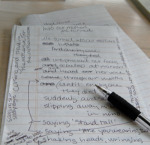 I slip them into letters, serve them with dinner and sprinkle them into everything from congratulations to condolences. I'm always sharing poems.
I slip them into letters, serve them with dinner and sprinkle them into everything from congratulations to condolences. I'm always sharing poems.
But sometimes my enthusiasm can be a bit much.
I don't really like poetry, a young writer recently admitted. I don't get it.
I gathered myself, rose to full posture and began my poetry pep talk.
And stopped.
She was right. I sometimes don't like poetry either. I get frustrated by clever phrasing, put off by evasive "meaning," and annoyed with lofty voice. Some days I want nothing to do with poets or poetry. All that suffering. All that longing. Too much whining. Let's get a Slurpee instead!
And then, a few days later, I find a killer poem. I climb into the poem like a kid in a tree, reaching higher and higher for the best view and the perfect perch. And then, because I've tasted how words, experience and perspective can blend, bend and sing, I clamber down to earth to write my own.
So I say to my young friend, Yes, yes, I know. But poems aren't secrets or tests. You don't need to analyze, you just need to feel.
She nods, and I can't tell if she agrees or is ready to bolt. I stop waving the poetry flag. We talk fiction instead.
And then, weeks later, she sends me a poem.
I found this and thought you might like it, she writes. And, of course, I do. I love the poem, the discovery of the poem, and the young woman finding her way with words.
Last night, as I was sleeping,
I dreamt — marvelous error! —
that I had a beehive
here inside my heart.
And the golden bees
were making white combs
and sweet honey
from my old failures.
- Antonio Machado
It's Thankful Thursday. Joy expands and contracts in direct relation to our sense of gratitude. What are you thankful for today? A person, a place, a thing? A story, a song, a poem? What makes your world, your heart, expand?
June 27, 2011
Join me?
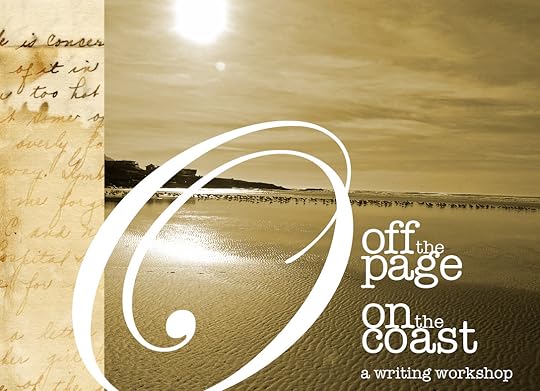
Off the Page, On the Coast
A one-day writing workshop in Yachats, Oregon
Saturday, August 6, 2011 from 10am to 4pm
A workshop for writers of all levels, experience & interests. From poetry to prose, fact to fiction, the focus is on fresh writing with prompts and practices designed to inspire and energize. Led by Drew Myron, participants will generate new work in an encouraging atmosphere and serene coastal setting.
The workshop takes place at the Overleaf Lodge Event Center, a warm and inviting spot nestled steps from crashing ocean waves, minutes from a shoreline trail, and in the beauty of Yachats, a tranquil beach town of just 650 people on the central Oregon Coast.
Cost is $65, and includes lunch.
To maintain a supportive, intimate experience, workshop is limited to 12 writers.
Register Now
- Register online

- Register by mail
Send check, and contact info (name, address, phone, email) to:
Drew Myron
Off the Page, On the Coast
Box 914, Yachats, Oregon 97498
Questions? Call 541-547-3757, or email dcm@drewmyron.com
June 21, 2011
Summer
in this kiss
all our other kisses—
summer solstice
— Ce Rosenow
from Pacific
a Haiku Society of America Book Award Finalist
June 16, 2011
Thankful Thursday: Stains and Stench

Dear Crummy Motel,
Thank you for perspective. A single dark hair clings
to the bathroom sink and mottled dust hovers
on the baseboard edge. But all is not grim.
Stained carpet and a thrift store stench
urge me to appreciate life's small luxuries.
Last night your thin walls invited me to the party next door,
and in this I am reminded that I am a quiet person in a quiet life.
Sometimes I forget.
On the table a tattered pad of paper calls me to scribble lines
about the barking men on the asphalt edges, revving engines
as their girlfriends emerge halter-topped and happy.
From the comfort of a swanky hotel, all this would go un-noticed.
I would be propped against thick pillows and smooth sheets
watching Real Housewives on a sleek screen. I would pretend
real means heels, hair and endless parties.
But you, humble motel,
remind me how little I need,
how much I have.
It's Thankful Thursday. Joy expands and contracts in direct relation to our sense of gratitude. What are you thankful for today? A person, a place, a thing? A story, a song, a poem? What makes your world expand?
June 13, 2011
Overheard
I'm curious and fascinated by the lives of others. What's your story? I always wonder.
As a reporter, my vocation provided the ideal excuse to probe for answers. These days, however, I ask less and listen more. When out to dinner, for example, I almost always listen to the conversation at the next table. I don't crane to hear. My nosiness comes naturally.
Lately, I have put my overactive listening skills to use. By gathering the lines of others and making them my own, I am creating overheard poems.
Happy Hour, Happy Birthday
— overheard at the Embarcadero Lounge
I got my AARP card in the mail.
I don't need that.
I went to Portland to drown my sorrows.
Thank God, there's always hair coloring.
I don't know what happened to my boobs.
I don't have boobs anymore.
It's a minus tide.
How about you? It's your turn to show and tell. What's in your ear? On your page?
June 9, 2011
Thankful Thursday: thx thx thx
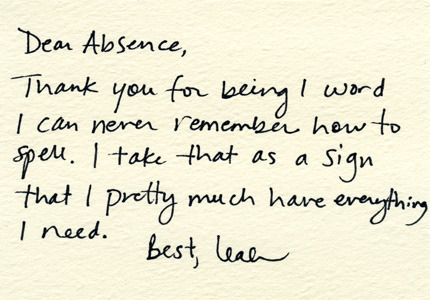
It's Thankful Thursday, a weekly pause to appreciate people, places and things.
Today I am thankful for a Leah Dieterich, a woman who shares my love of the thank you note. Her book, thx thx thx: thank goodness for everything is a collection of her thank you notes to the world.
"A few years ago I was living in the future," Dieterich explains in the book's foreword. "Not in a sci-fi kind of way, but in that I spent a lot of time thinking about what I'd do when this or that happened, or what I'd do if it didn't. It was stressful to live like that all the time. There were occasions, however, when I felt more calm, more satisfied, and I noticed these were the moments I stopped to think about all the things I had right then and there. The things I was grateful for."
Neither saccharine or sentimental, Leah's thank you notes show great mindfulness. Still, she acknowledges that a thick book of small notes is a tough sell, and even turns that awareness into a thank you note: "I realize a book of thank you notes could come off as overly sentimental, syrupy even, so I applaud you for being less cycnical than the average person."
June 6, 2011
Surprise !?
Last month I gave away a bag of books. No ordinary grab-bag, mind you, but a carefully selected Surprise Package of Good Books.
And the surprise was partly on me, as the first winner — chosen in a highly unscientific, blindfolded drawing — was a no-show. Oh, Ida, we hardly knew you. In fact, we knew you not at all. Fortunately, the bag of books found a home with our second place winner: Shirley!
And because so many participants have asked (okay, just one) I will now unveil the books you could have won, and could be reading right now. While this tease may seem a bit cruel, do not despair. You can get your grubby little hands on these books; Go to your local library, used bookstore, new bookstore, e-reader — or just hit up Shirley.
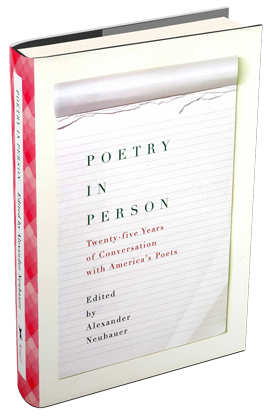 Poetry in Person: Twenty-five Years of Conversation with America's Poets
Poetry in Person: Twenty-five Years of Conversation with America's Poets
Edited by Alexander Neubauer, this thick volume provides both a historical and insider's experience with a stellar line-up of premier poets.
Pictures of You
The latest novel by Caroline Leavitt showcases the prolific writer's consistent skill at weaving contemporary story with engaging plot.
Living Things: Collected Poems
Anne Porter was 83 when her first collection of poems was published. The book was a finalist for a National Book Award for poetry and was followed by Living Things in 2006. One Minute Book Reviews calls her "an Easter lily in the field of late-blooming poets. . . She describes a world that is, as O'Connor put it, founded on the theological truths of the Faith, but particularly on three of them which are basic – the Fall, the Redemption, and the Judgment . . . Porter transmits her Franciscan joy in created things and reminds us that the idea of the holy is still possible for us."
Haiku Poetry
This slim and unassuming book of poems holds the impressive work of Seattle, Washington-born poet and philosopher James William Hackett, born in 1929. Notable for his work in English, an international award is given in his honor: The James W. Hackett Annual International Award for Haiku, administered by the British Haiku Society.
Waterstone Review
A literary annual published by the Hamline University Graduate School of Liberal Studies, Waterstone published work of all genres as well as essay, reviews and interviews. It's one of my favorite literary journals.
This was fun. Let's do it again soon. In the meantime, do tell, what books have surprised you?



